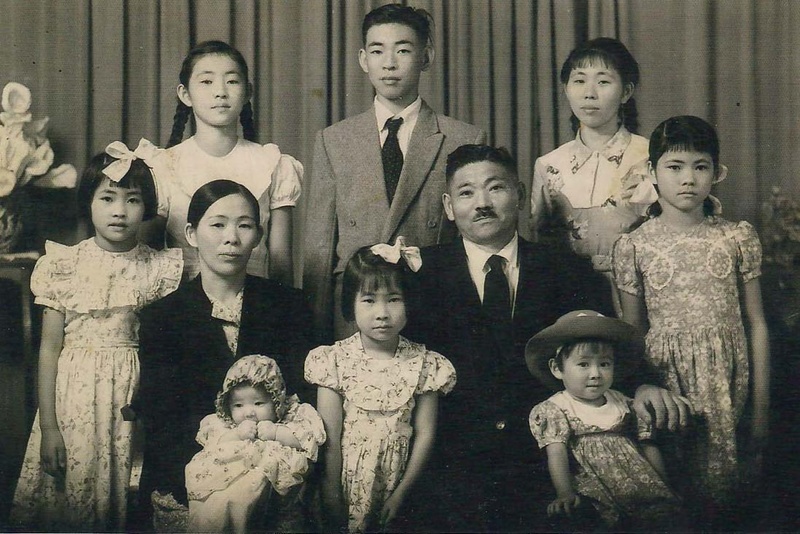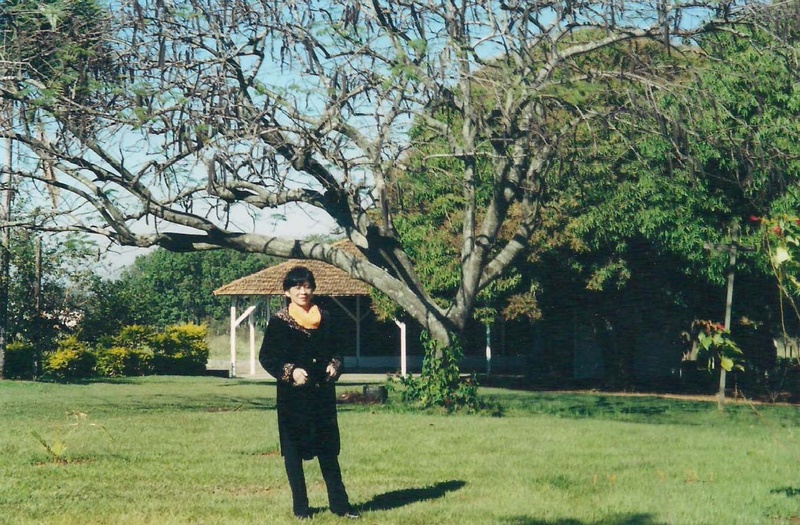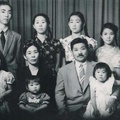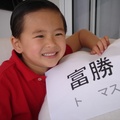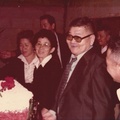Koná goroshono tyomém shensheiga kawashita – would any Nikkei understand this sentence?
It is a mixture of dialect and a word in Portuguese, but with a Japanese pronunciation, the translation of which would be: The teacher ordered the purchase of a thick notebook.
Normally I introduce myself as a native Bastos, born and raised in Bastos, the most Japanese city in Brazil. Therefore, I'm going to share here some of the Nikkei-go that I've learned since I was born.
I remember a series of phrases that I used on a daily basis and, even now that so many years have passed, if I don't watch myself, I'm using them without the slightest embarrassment. With a Japanese mind, we mix Japanese with Portuguese, but we hardly realize that this association can result in embarrassing sentences.
Looking at a beautiful flowering of chrysanthemums he says: “What a beautiful ki-kú !”;
Seeing the clock that says 9:30: “It’s ku-di-ham ”. Then they ask “What is ku from?
“I’m going to do sentá-ku (wash clothes)”, then they ask: “Are you really going to sit down?”
Entering a smelly place he says: “ Kokô kussai ”.
When I got married I called my husband “Oh! good". A Japanese friend, upon hearing this, reproached me: Soredakewa yoshitekuré . Rightly so, as it has a very pejorative meaning in Japanese: “Big shit”.
Many old Nikkei try to speak in Portuguese, but the accent comes out as Japanese. An example is the “gorosho” that I reported at the beginning. Another examples:
When the Voyage car was launched, a Japanese man said: “I bought a car called Oyadi ”.
My father-in-law insisted on talking to my children in Portuguese and said: Áshiki (I think); Yô-bai-né (I'm going, right); Bambê, right (Let's see, right?). And when he got angry: Didigurashad ! (Bastard!).
A Japanese friend heard my father-in-law using the pronoun Yô and questioned whether it would be arrogant on his part to use a Japanese pronoun that only a tonosama (feudal lord in ancient Japan) would have the right to.
The fact is that Yô comes from the pronoun “I”. Even today, I hear Nikkei saying: Yô tati or Yô ráti (we); Yô ra (us, masculine).
In the city of Bastos, until the second generation of immigrants, everyone communicated, for better or worse, in Japanese. The immigrants came from various regions of Japan bringing archaic Japanese in their luggage. But Japanese changed a lot in the post-war period, when foreigners entered that land. I remember my uncle who never left Japan complained about modern Japanese.
I have a daughter and a son who were scholarship recipients from the Japanese government (Monbukagakusho) and, as they had access to a more modern language, they were scandalized by my archaic Japanese when talking to Japanese friends my age.
But I grew up hearing family and neighbors using these so-called archaic words: keshikarán (unacceptable), rokudemonashi (disorderly person), yamuen (no alternative), kaguebenkei (weak person who pretends to be a hero), ketó or gaijin (foreigner), shakan ( bricklayer), shoubun (character), nussutô (thief), gariyú (done in his own way), miyouna koto (strange thing).
The Decasseguis have scandalized the Japanese by using the word bendyo , instead of the current toire . Even more so when they use the prefix “o” in front of bendyo , believing it to be more polite.
Out of habit, many people think they are talking in pure Japanese when they say: “Carro de iku ” (I'm going by car); “Papai wa orán ” (Daddy is not there); “ Yô ga casa shita koro ” (At the time I got married).
I fondly remember my youth, when we had fun inventing words, mixing the Japanese verb + -ndo to form the gerund: “vamos arukando” (aruku=walk); “Let’s go odorating” (odoru=dancing).
We also went through a lot of tight skirts:
- At the supermarket, the Japanese wife took the basket and told her husband who was far away: “Kagô kokô” (Here is the basket) and this repeatedly. The Nikkei husband was quite embarrassed;
- At the hospital, Liana’s mother wanted to go to the bathroom and desperately asked: “Shikko, shikko!” and the nurses desperately looked for Mr. Chico;
- For a long time, my father believed that fish in Portuguese was bakayarô , because the fishmonger served him promptly and offered cod;
- Japanese immigrants fought sumo in their free time and Brazilians gathered around curiously. But when the judge said Matta, Matta , the Brazilians fled in terror, thinking they would be killed;
- The first Brazilian football players were welcomed with a cocktail in Japan and toasted happily: Timtim-timtim. Which left the Japanese in a real mess.
Nikkei who grew up speaking Japanese have some difficulty pronouncing it due to the mixture of languages: hashí (bridge) and Háshi (chopsticks); sumisô (vinegar sauce with miso) and disappearance (from the verb disappear).
Others try to translate it literally: “I saw a 'sack' flying” instead of “I saw an owl flying”, because sack=fukuro and owl=fukurou. “Oh! Ofurô oishikatta”, meaning that the ofuro bath was delicious, but the adjective oishii refers to the delicious taste of food.
In addition to speaking archaic Japanese, there were several dialects together. I wouldn't know how to define the region of origin of each dialect. One day, walking through a suburb in Japan, I came across a sign listing some dialects and the corresponding translation. That's when I recognized several of these words and felt comfortable and happy.
But my children say they have difficulty understanding Bastos-go.
Another thing I have noticed is that most people who speak Bastos-go, when they are in the presence of people who know formal Japanese, feel intimidated, preferring to speak in Portuguese.
I selected some dialects that were heard in Bastos:
- YUUTIYORUKÊ (is speaking)
- KOMÁTYORU/KOMÁTANOU (it's a problem)
- KORIGORI/KATAKORI (stiff neck)
- TAMAGUÉTA (I got scared)
- SOUDAMBÊ (verb to be: that's it, that's it)
- SOUDABÊ (idem)
- OOKINI (thank you)
- SOO YANÉ (verb to be: is it?)
- DONAISHÕ (what do I do?)
- ATAMA NO TÓPETSU (top of the head)
- SONNA MON DATTA (it was like that)
- DOGUÉN SHITÁ? (what happened?)
- HIMÓ WO KUKÚRU (tying shoelaces)
- TOSSAKA NI KÚRU (comes to mind)
- GOROTSUKI (person who intimidates with threats)
I confess that the speech of samurai in epic films (Didaigueki) is more understandable than the speech of teenagers in a modern film.
Currently, the Nikkei make the plural of Japanese words as if they were Portuguese: kodomós (children), magós (grandchildren), kurumás (cars). Just the other day, during the broadcast of the Rio 2016 Olympics, the announcer said: “the wazás of the judokas”.
My father, when he returned to Japan after 40 years, entered the restaurant and said to the waiter: “'MESHI KURÊ”, thinking that the waiter would understand that he wanted a meal. But, to my father's surprise, the waiter asked: “What is MESHI?”
Very disappointed and impatient, my father replied: “AROISSU DÁ!”.
If he were alive now, my father would certainly say:
Not to ram nihongo gives , sore demo nihongo ká? referring to modern Japanese.
© 2016 Rosa Tomeno Takada


